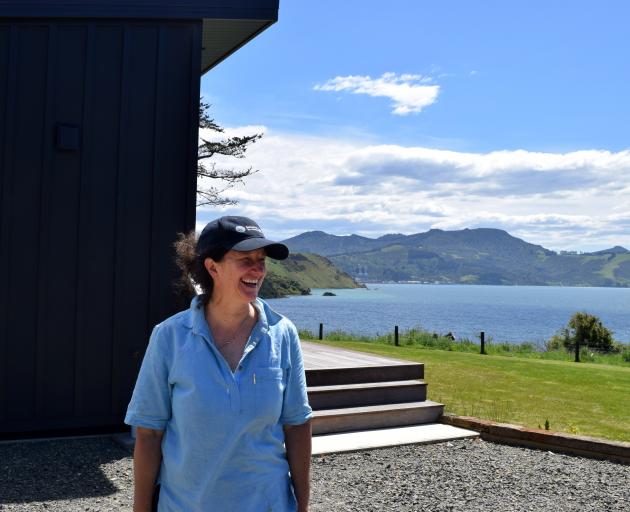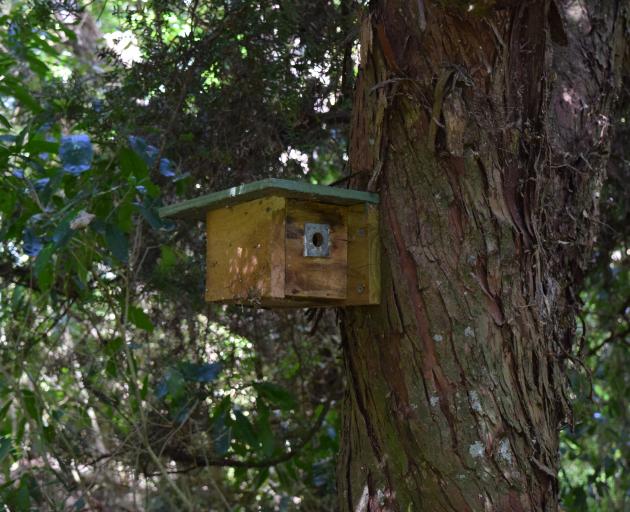
Sheep and beef farmers Brendon and Paula Cross have registered another Queen Elizabeth II National Trust covenant on their 200ha sheep and beef property Roselle Farm near Portobello.
The trust partners with private landowners to protect sites on their land with covenants. The protection stays on the land even if the property was sold to a new owner.
A nearly-4ha block of coastal forest, treeland, shrubland and exotic grassland on their farm was protected under their latest covenant, named Roselle.
Mr Cross said the cost to install a rabbit-proof fence surrounding the protected area was split three ways between the Cross family, the trust and the Otago Regional Council.
In 2008, another 2.5ha block, named Geary’s Bush, was registered with the trust.
The land was previously owned by his great great great grandfather William Geary.
In the same year, another 3ha was registered on Roselle Farm and named Seaton’s Bush.
The Seaton’s Bush block featured a few kānuka trees and grass when it was registered.
Now it was covered with naturally regenerated native vegetation.
Native birds had thrived since the land had been protected.
"Tūī, bellbirds, pīwakawaka and kererū."
Mr Cross’s family had run Roselle Farm since the 1840s and he never saw any kererū on the farm during his childhood.

Possum control work by the Otago Peninsula Biodiversity Group was a reason the kererū were flourishing, he said.
The population of rifleman, or tītipounamu, were growing.
Nesting boxes for the small birds had been installed in the protected areas and were monitored by volunteers.
As there were fewer pests, there were more birds, which needed somewhere to nest and feed.
A covenant registration complimented the pest control work, he said.
Native vegetation was removed as farming intensified on the peninsula.
A covenant was a fantastic way to protect any remaining native vegetation.
His only regret about the covenants was not registering them sooner.
The Cross family run about 3600 ewes, 1000 hoggets and about 50 cattle on 850ha of steep hill country on the peninsula, which they own and lease.
Conditions to their three covenants banned livestock from entering the areas.
Livestock numbers had been able to remain the same after the covenant registrations.
The goal when farming on Otago Peninsula had never been to have the highest production per hectare, Mr Cross said.
"I’m happy to leave that to other people."

The wind event was the most ferocious in living memory, exacerbated by the westerly direction.
Some of the fallen trees damaged fences, blocked accessways and took out the overhead powerlines supplying electricity to their woolshed.
Replacement powerlines had been buried to avoid a future outage.
"We have upgraded to underground to take that problem away ... it has future-proofed it."
Livestock ate the leaves of fallen willows and poplars.
"The sheep were loving it."
To diversify the business and protect it when sheep prices were low, they built a new tourist cottage on the farm and called it Blimeys.
"This allows me to keep farming," Mr Cross said.
The generation of extra income could help with the succession process.
Mrs Cross said she would like to think current sheep prices would remain up but she was a realist.
"We have farmed long enough to know that it could be a good year and who knows what is going to happen the next year."
A former owner of the land where the new cottage was built was George "Blimey" Smith, who got his nickname for frequently using the expression.
Mrs Cross was enjoying the experience of providing accommodation and sharing the beauty of Roselle Farm and the peninsula, she said.

Minister of Conservation Tama Potaka said the government was investing more in the QEII National Trust.
The trust received $4.274 million from the government in baseline funding.
Another $4.5 million over three years had been approved, lifting the trust’s government support to nearly $5.8million a year.
"Our latest funding boost directly responds to that growing demand from farmers and landowners to do more for nature."
Other recent southern covenant registrations include:
• 27.52ha Eweburn Stream Covenant in Te Anau
• 3.51ha Te Pirika a Nathan in Evansdale, Dunedin
• 2.95ha Kōwhai Reach in Tuatapere
• 63.21ha Airdrie Tōtara Covenant in Chatto Creek
• 3.94ha Little Omaru in Glenomaru Valley, Clutha
• 2.77ha Lindisvale II Covenant in Lindis Cross, Tarras
• 9.94ha Kaikai Beach in Port Chalmers, Dunedin

















